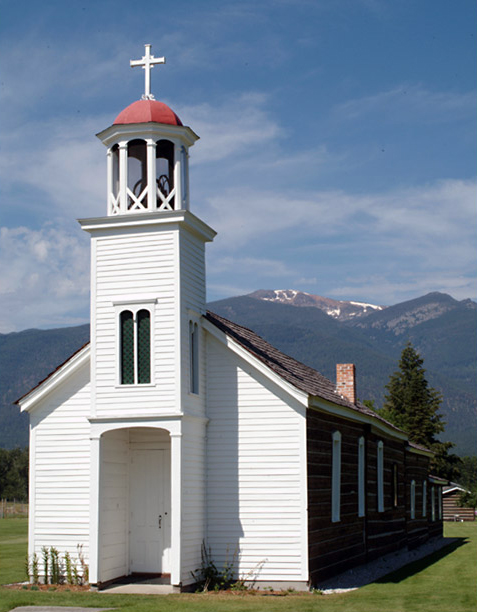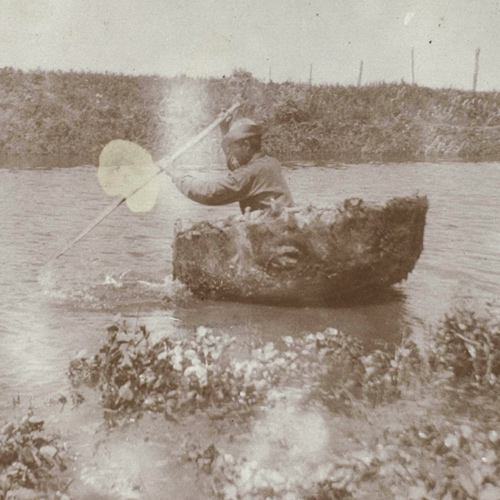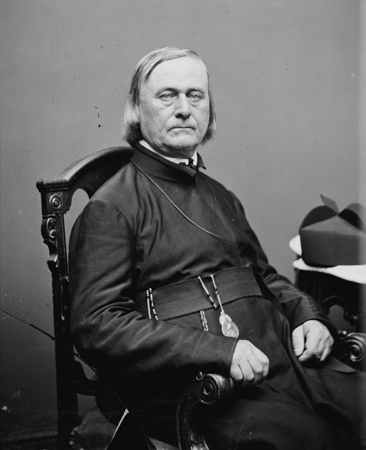Gustavus Sohon[1]His first name is given as Gustav, Gustave, and Gustavus was a U.S. Army artist for several government-sponsored expeditions, most notably the one led by Isaac Stevens in 1853-1855 to locate potential railroad routes to the Pacific Coast. In 1862, he was called to Washington, D.C. to assist in the completion of the official report of the Stevens survey. Sohon’s hand-tinted lithographs of Western scenes remained an important basis for popular perceptions of the Far West.
Featured Works


The continuation of the Northern Nez Perce Trail led from their camp at Travelers’ Rest to the plains near the Great Falls of the Missouri, saving hundreds of miles from the expedition’s 1805 route.


Lt. John Mullan surveyed the Northern Nez Perce road across the Bitterroot Range in 1853-54 to assess its suitability as a railroad route. He never met anyone named Lolo, but was told by an Iroquois guide and interpreter that the creek was called the “Lo Lo Fork,” or “Lo Lo’s Fork.”


The closing of the first St. Mary’s Mission on 5 November 1850 was punctuated by the sudden death of “Lolo, the only Indian who still remained well disposed and really attached to religion.”


After Lewis’s preliminary sketch, later artists and photographers contributed to the visual documentation of the “sublimely grand” waterfall including Barralet, Gustavus Sohon, A. E. Mathews, and F. Jay Haynes.


With every crossing they unavoidably drifted farther downstream. Lewis recounted the climactic rafting episode of the day.


Indians stole all the horses, so Sgt. Pryor and his three privates constructed two bull boats and floated down the Yellowstone River in hopes of catching up with Clark or Lewis.


Among the most faithful of the missionaries’ converts to Catholicism was a half-breed trapper named Lolo who was killed by a grizzly bear in November 1850.
Notes
| ↑1 | His first name is given as Gustav, Gustave, and Gustavus |
|---|
Experience the Lewis and Clark Trail
The Lewis and Clark Trail Experience—our sister site at lewisandclark.travel—connects the world to people and places on the Lewis and Clark Trail.
Discover More
- The Lewis and Clark Expedition: Day by Day by Gary E. Moulton (University of Nebraska Press, 2018). The story in prose, 14 May 1804–23 September 1806.
- The Lewis and Clark Journals: An American Epic of Discovery (abridged) by Gary E. Moulton (University of Nebraska Press, 2003). Selected journal excerpts, 14 May 1804–23 September 1806.
- The Lewis and Clark Journals. by Gary E. Moulton (University of Nebraska Press, 1983–2001). The complete story in 13 volumes.


